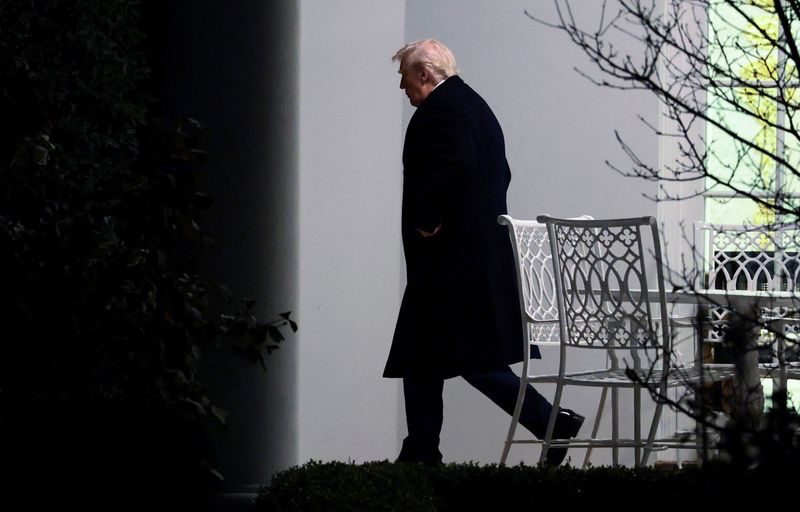Trump buys at least $82 million in bonds since late August, disclosures show
By Nandita Bose
WASHINGTON (Reuters) -U.S. President Donald Trump bought at least $82 million in corporate and municipal bonds from late August to early October including new investments in sectors benefiting from his policies, financial disclosures made public on Saturday showed.
According to the forms released by the U.S. Office of Government Ethics, Trump carried out more than 175 financial purchases from August 28 through October 2. The disclosures, made under a 1978 transparency law called the Ethics in Government Act, do not list exact amounts for each purchase, only providing a broad range.
The maximum total value of the bond purchases exceeded $337 million, according to the filings.
Most of the assets listed in Saturday’s disclosures consist of bonds issued by municipalities, states, counties, school districts and other entities with ties to public agencies.
Trump’s new bond investments span several industries, including sectors that have already benefited, or are benefiting, from his administration’s policy changes such as financial deregulation.
Corporate bonds acquired by Trump include offerings from chipmakers such as Broadcom and Qualcomm; tech companies such as Meta Platforms; retailers such as Home Depot and CVS Health ; and Wall Street banks such as Goldman Sachs and Morgan Stanley.
Purchases of the debt of investment banks in late August included bonds of JP Morgan. On Friday, Trump asked the U.S. Justice Department to investigate JP Morgan over its ties to the late financier and convicted sex offender Jeffrey Epstein. The bank has said it regrets its past ties with Epstein and did not help him commit “heinous acts.”
Trump also acquired Intel bonds after the U.S. government, under Trump’s direction, acquired a stake in the company.
The White House did not immediately respond to a request for comment on Saturday. The administration has said before that Trump has continued to file mandatory disclosures about his investments but that neither he nor his family has a role in running the portfolio, which is managed by a third-party financial institution.
Trump, who became wealthy in the real estate sector before entering politics, has previously said that he placed his companies into a trust overseen by his children.
A disclosure filed in August indicated that Trump had purchased more than $100 million in bonds since returning to the presidency on January 20. Trump also submitted his annual disclosure form in June, which indicated that income from his various ventures still ultimately goes to him, raising concerns of potential conflicts of interest.



Leave a Comment
Your email address will not be published. Required fields are marked *